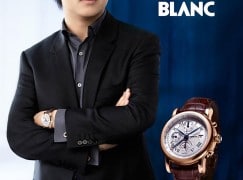Concertgebouw orchestra goes Blur
NewsThe orchestra, lacking a music director, has announced a Pierre Audi-directed weekend in February with the former Blur frontman Damon Albarn.
Cool idea, but with an orchestra of this calibre?
On Friday 11 and Saturday 12 February 2022, the Royal Concertgebouw Orchestra will embark on a new path with the exceptionally versatile singer-songwriter and all-round musician Damon Albarn. In close collaboration with Pierre Audi, creative partner of the orchestra, and conductor André de Ridder, the Concertgebouw Orchestra presents a program in which various aspects of Albarn’s eclectic musical universe are discussed. Damon Albarn: Symphonic Loops is an exciting boundless musical adventure in the theatrical space of the Gashouder. The concert starts at 8.30 pm and lasts approximately one and a half hours (without intermission).
Damon Albarn rose to fame as the frontman of the idiosyncratic British band Blur, after which he established himself with the virtual band Gorillaz and in various music and theater projects as an innovator with a wide field of view, working with musicians from many different disciplines from all over the world. .
Damon Albarn: Symphonic Loops promises to be an exceptional evening, with guest musicians such as singer/guitarist Afel Bocoum and kora player Mamadou Diabaté from Mali and Mélissa and Ophélia Hié from Burkina Faso, who will play with Damon Albarn in enchanting pieces from his repertoire. In the imposing Gashouder, Albarn’s creativity will also be confronted for the first time with a large symphony orchestra in a multicolored concert in which, among other things, great orchestral music by the inspiring French composer Olivier Messiaen will be played.






Comments